Women's Burdens Amidst Flood Disasters
Jan 21, 2015
Story
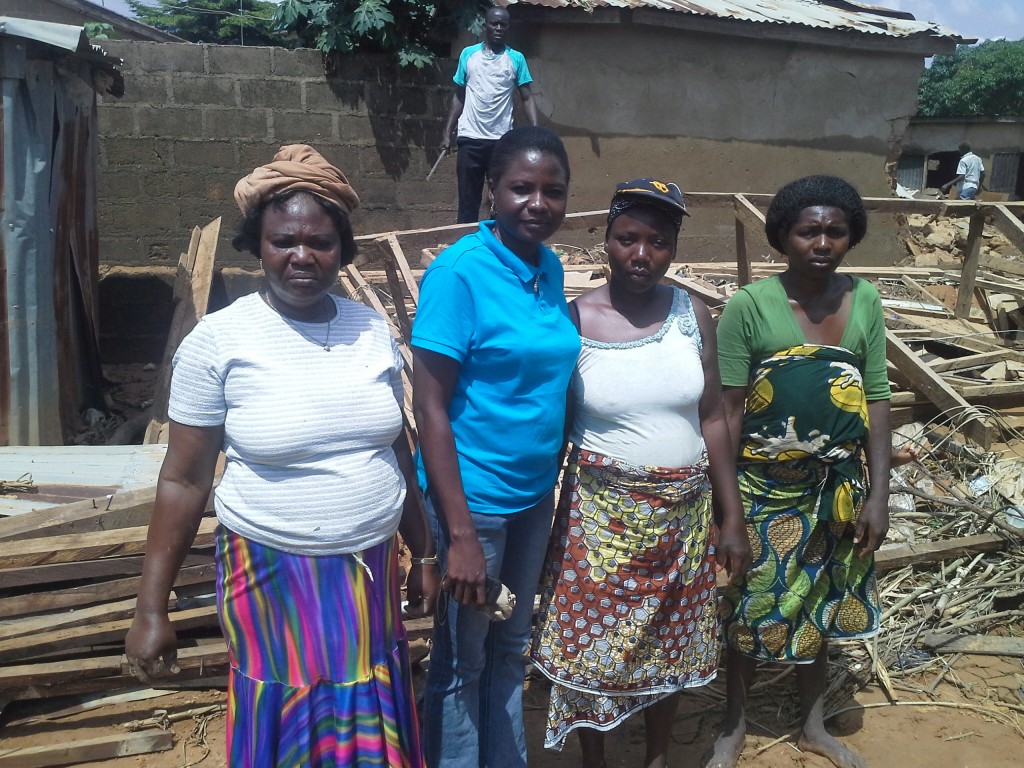
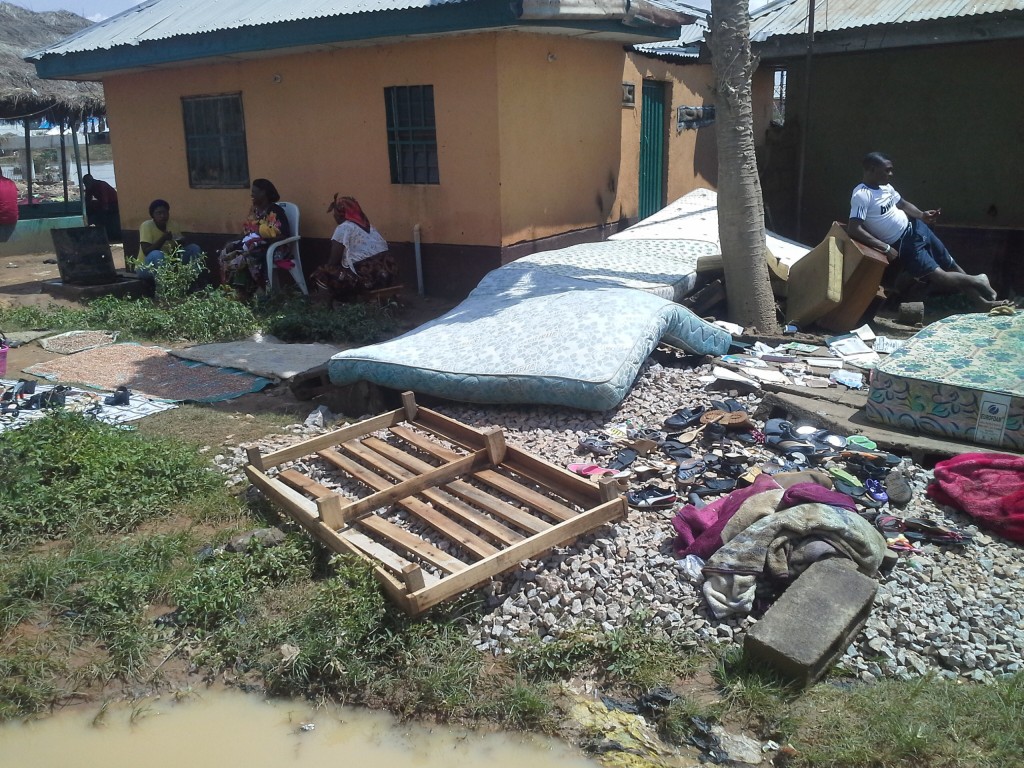
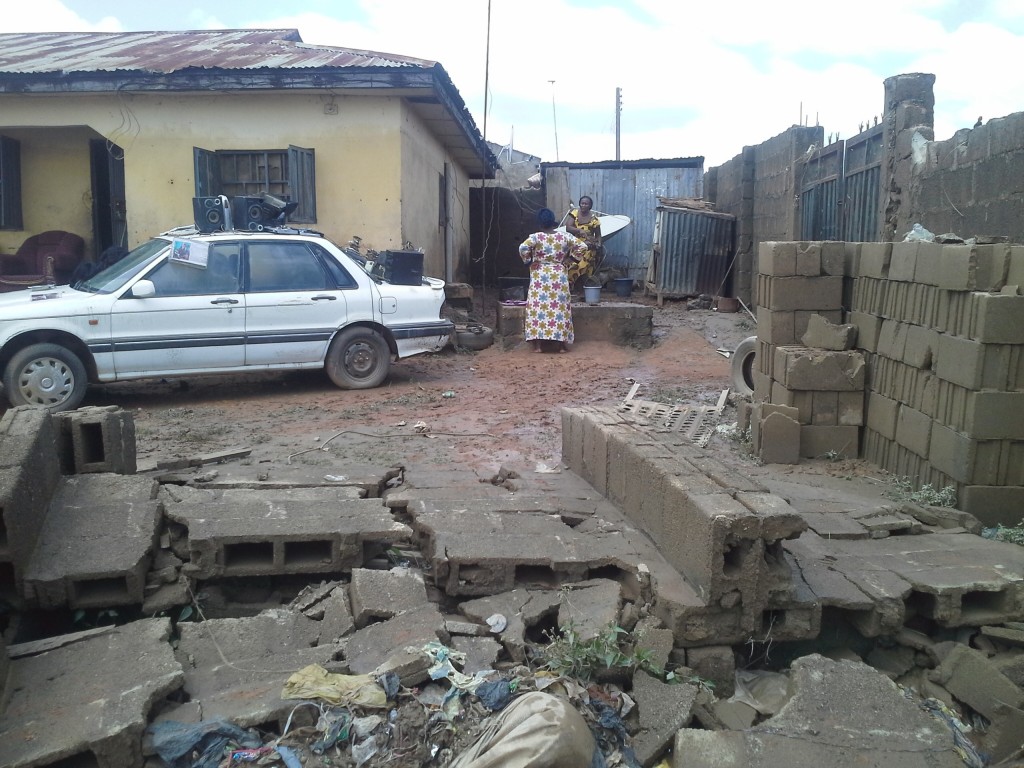
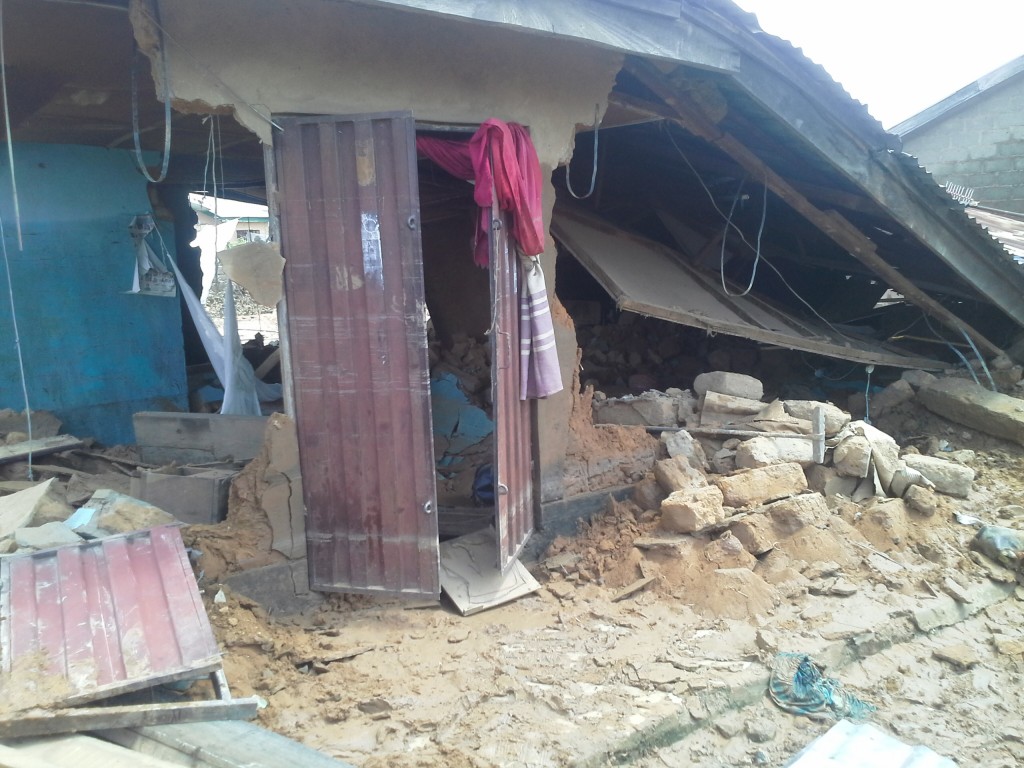
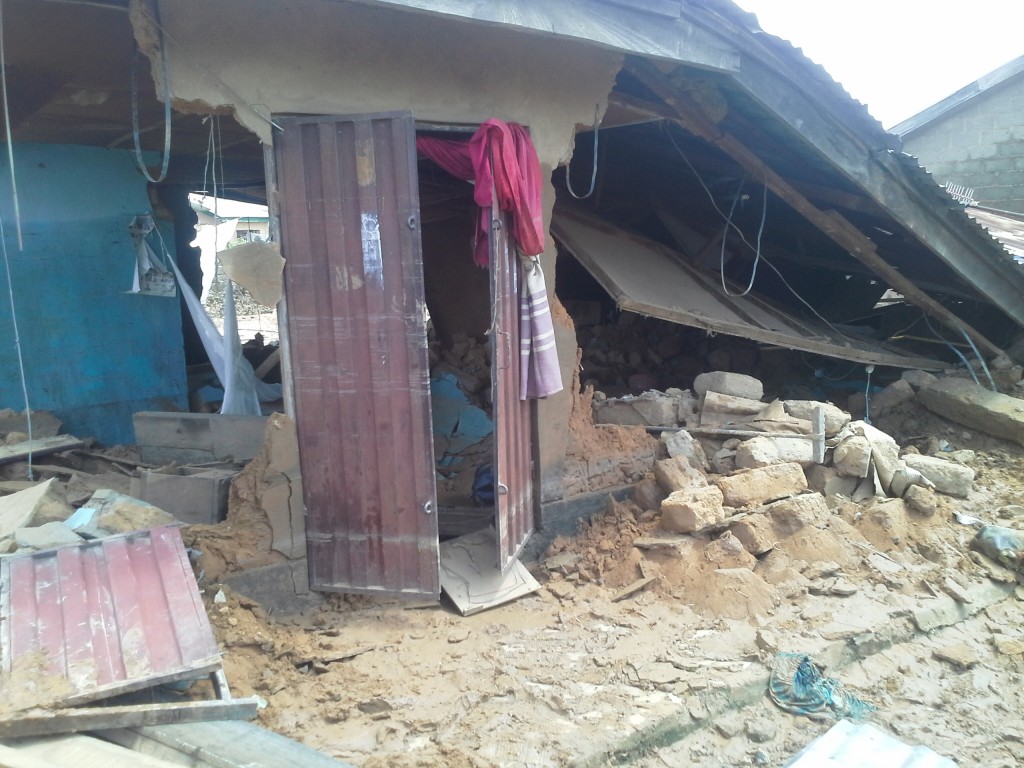
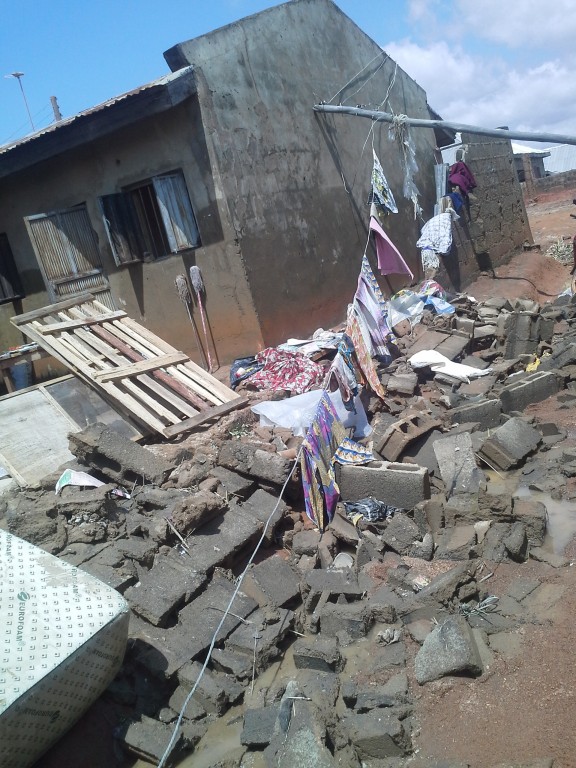
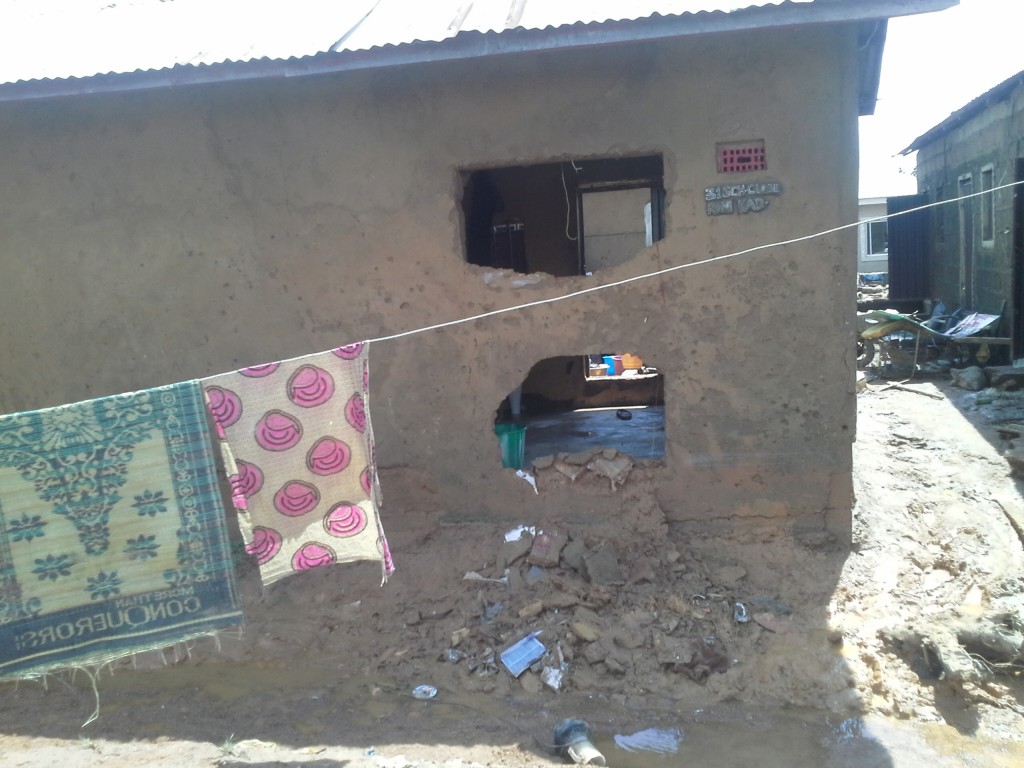
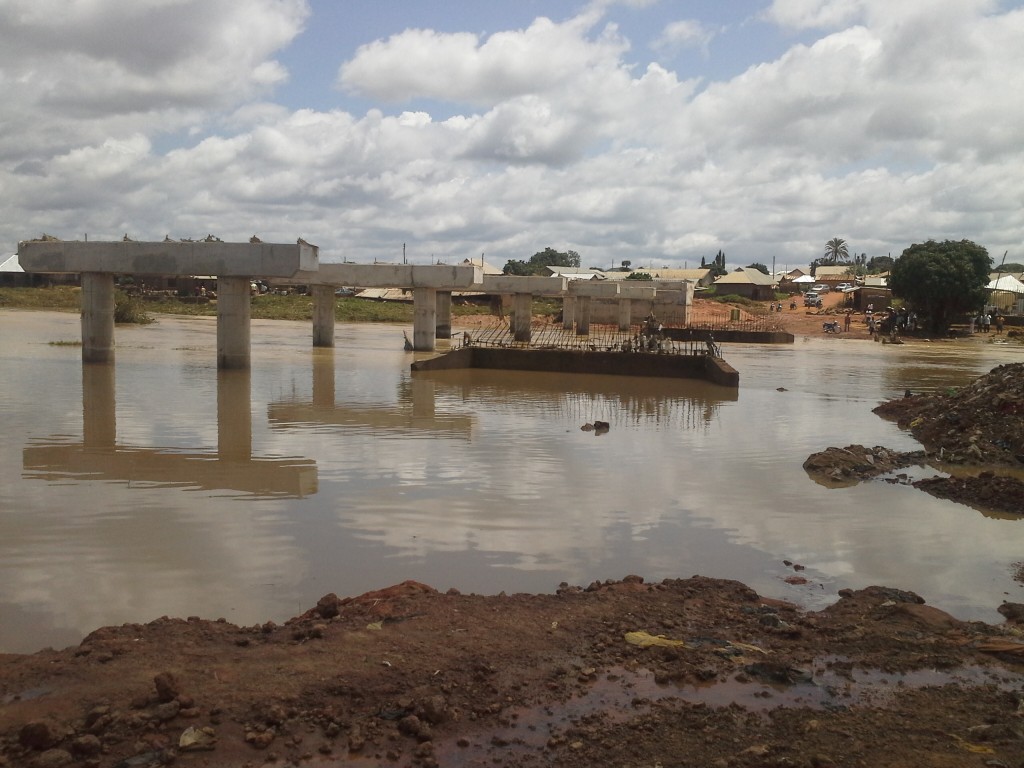
Kaduna, NIGERIA: The torrential downpour which lasted started around 3 p.m on Tuesday 10th September continued into the evening hours of Wednesday in many parts of Kaduna Metropolis. Of course no one was left in the doubt that the intensity called for concern, particularly in flood prone areas. By noon, the flood waters blitzed into several communities and left in its wake a level of devastation that was undreamed of.
Residents fled as the flood waters surged wrathfully towards their homes. Houses, most of them, built of weak mud structures gave way as they could not withstand the intensity of the flood waters. Farmlands and household properties worth millions of naira were also not spared. Shortly after the devastation, the flood waters receded just as quickly as it overran the affected communities of Ungwar Romi, Ungwar Rimi, Ungwan Gimbiya, Kamazou and Abubakar Kigo road new extension; all within Kaduna Metropolis. It is estimated that over 50,000 people especially women and children were displaced and no fewer than 400 Houses were destroyed; rendering many people homeless.
A day after the flooding, Mr. Hope Wyenom, a professional colleague, called my attention to the level of devastation at Ungwar Romi. He informed me that the community was one of the worst hit. Same day, in the company of my informant and four other volunteers, I visited the community. Residents, especially women were seen salvaging household items, clearing out debris, cleaning their homes, washing and spreading clothing and other materials.
Many of the residents recounted that the flood waters took them by surprise and left them with no choice than to flee to safer grounds. Mr. Gamaliel, a resident who led us around explained that “by Wednesday afternoon the water had submerged many houses and household items such as fridges, mattresses, cooking utensils etc could be seen floating, just as many domestic animals were swept away”.
We approached a man and 3 women who appeared dead beaten. The three women walked around with feet that were bare and smudged with wet mud, quite oblivious of the spiky nails sticking out of the long beams that littered the ground. They were retrieving beams and zinc roofing sheets from the wreckage of a mud house that had given way. It was quite pathetic seeing them do such a hard work, but gladly they had some time to spare for a conversation.
Is this your house? I asked the eldest of the three women.
Exhaustion and worry was clearly written all over her face as she responded, “No, my husband inherited the house from his father”. We both lived with our children and tenants in the building before the flood waters pulled it down.
So where are you staying now?
‘We don’t have anywhere to move to so we slept outside in the nearby primary school with our children and loads. We lost our clothes shoes and even our money. Everything has been washed away by the flood water. We have nothing left besides the few things (a few kitchen utensils, obviously wet and worn cushion seats, and a number of children’s books) over there”. Every house around here has become empty’.
Has any Government official/representative or community leader visited this place after the flood occurred?
“Yes, the Deputy Governor of the State came, he looked around but didn't say anything”. With eyes lightening up, she added “If the Government can help us, we would be grateful”.
Are you suggesting that no form of assistance or intervention has come from the government?
As the women made attempt to answer the question, the man who had all the while busied himself with salvaging the beams, suddenly turned towards us. “You people are just asking questions as if you are not Nigerians. You are asking questions as if you are not in Nigeria. You know what happens” he retorted. Much as we all understood what he meant, all I could say to pacify him was that I was only there to gather facts and report the situation in exact terms.
One of the three women who had been chipping comments at intervals suddenly yelled, “ wo, so fun omo yen ko mu suru ni, ko ya mu suru ni o (see, tell that child that he should be patient, he just has to exercise patience)”. Her words were directed at a young girl who was sitting nearby, on the brick red muddy ground and holding a howling infant. As I tried very hard to contain the mind boggling situation around me, a heavily pregnant woman who was also bare foot, sluggishly walked past us. Her air was disorderly and she looked really feeble and despondent. Of course, I didn't need a soothsayer to tell me that she was one of the many victims of the flood.
The floods have come and gone but blame trading between residents and the authorities appear endless. An ex government official who spoke to me under anonymity said "the State government had since issued warnings to people living along flood plains/flood prone areas to relocate". However, some residents have remained unyielding as they claim they have been living in the areas for many decades; and clueless about where the government expects them to move to when they have not been offered nor provided with any alternatives.
Dr. B.A. Hyuwa, an Environmental expert said there is no moral justification for residents of the affected areas to continue living there; as such areas had since been declared as flood disaster spots. He said “The problem of flooding is one of the adverse effects of Climate Change and going by the incidence of rising sea level which is linked to climate change; it is only just the beginning of flooding”.
Today, it is exactly a month, two weeks and one day after the floods occurred and victims, particularly women, are still trying to find their feet again. Many of them would rather relocate to safer areas, but it was apparent that such a decision can only be taken by their husbands. Blessing O. (not real name) said “the flooding is a regular occurrence in this community but this year’s experience has been the worst so far. I am tired of the situation and willing to move but my husband has the final say”.
It is sad that even in the face of ecological challenges such as flooding, which threaten women’s very existence; patriarchy still plays out and carries the day. Women’s interest and concerns are deemed unimportant, so they are excluded from making decisions, even in very obligatory circumstances. They would rather be seen than be heard.
There is no wisdom in marginalizing or relegating women to the background. Women should be given a say because they are capable of making tangible contributions towards solutions that can address issues (ecological, economic, political, technological etc) that specifically affect their lives, family, community and the society at large. Women want to be seen, heard and regarded! Thus, it is high time for men to accord women the social recognition they merit in every facet of development.




